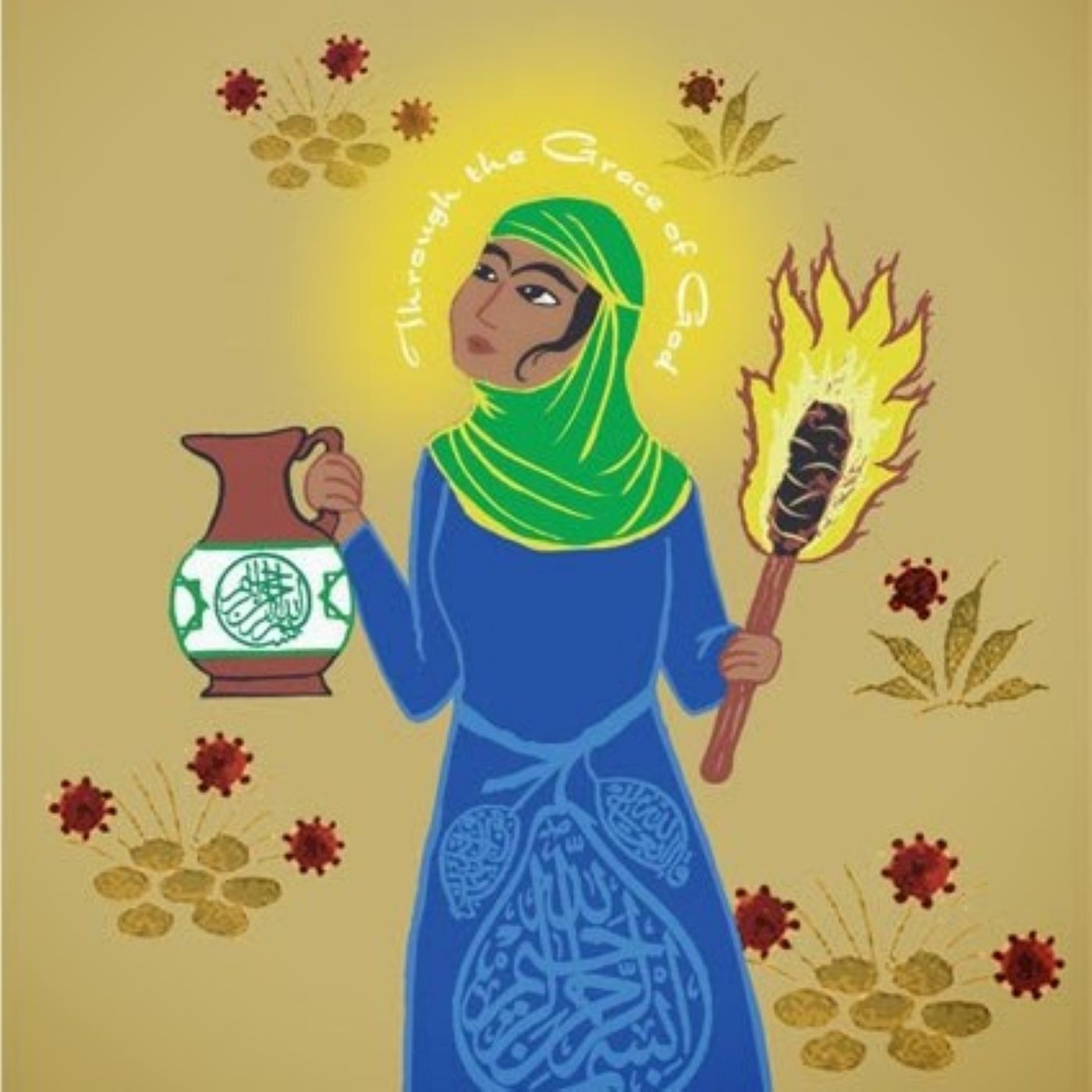Show Notes
Rabi’a is another of our living goddess who lived in Iraq in the 8th century. She is also the first story I have shared from the Islamic faith. I was delighted when I found there was a female Islamic saint as I had only previous known of male ones. I didn’t just tell her story for that reason- I truly loved the core of what she shared in her teachings- to look for a connection to God for the beauty of knowing of love. So much of religion has been buried under politics and patriarchy so to have a story that goes back to the core of a faith was wonderful in itself, aside from it being that of a woman.
Show Transcript
Rabi’a
Her story begins upon the ancient lands of Iraq but in a time not so far away.
In a small village on the outskirts of Basra lived a family whose means were as far from wealthy as you could imagine. When Ismail’s fourth daughter arrived they had barely a spare cloth to wrap her in and no oil to anoint her naval as was the custom for a new born.
The mother pleaded with Ismail to ask their neighbours for some oil to do the anointing and bless their daughter’s arrival. So Ismail with his feet dragging made way out of their hut to do so. As he walked he tried to conjure what words he would use and could not find them. For long ago he had vowed to his god, Allah, that he would never ask of another for anything he needed. He would always keep faith that Allah would provide for him and his family.
He stopped and looked up at the evening sky. They would need the oil for some lamp light soon as well as the anointing. Still this could not press him to break his vow.
Ismail stepped back into the hut and when his wife realised the small pot he had taken to collect the oil was empty, she began to weep. His heart now grew truly heavy with the conflict of his promise and the needs of his family. Ismail knelt to make his final prayers for the day as tears fell down his face.
He prayed over and over, hoping that the more he called to Allah the more likely his god might hear him. Then in absolute exhaustion he collapsed where he was and fell into sleep.
Ismail began to dream. Once more he was walking to his neighbours with the empty oil pot in his hand. Then the scenery changed. He was still walking but now he realised he was on pilgrimage. In the distance the Ka’bah of Mecca appeared and he felt the joy of making way to the most sacred of sites. Beside him a man appeared and was walking with him. Ismail rejoiced to know he had a companion.
Then his new acquaintance spoke. “Do not be sad at the arrival of your daughter. She is most blessed by Allah and will teach many the right path. I promise you Allah has heard every prayer you have spoken and wishes you to be rewarded. Tomorrow you will make way to the Amir and tell him this-"You offer Durood to the Holy Prophet one hundred times every night and four hundred times every Thursday night. However, since you failed to observe the rule last Thursday, as a penalty you must pay the bearer four hundred dinars."
When Ismail woke the memory of the dream was as vivid as though it had just occurred before him. He knew in his heart it had been the most holy prophet Mohammed who had visited with him and given him the message. It was this conviction that emboldened Ismail to make way to the Amir with no fear or hesitancy.
The Amir was the governor of the lands upon which Ismail and his family lived. There was no greater power or authority. Yet Ismail approached him within his court as though they were equals. Standing before him, meeting the Amir’s eyes, he relayed Mohammed’s message.
The Amir fell back in his chair and gasped. Then he sat forward, leaning towards Ismail and smiled. There was no anger for indeed he had broken his vow to offer Darood four hundred times the previous Thursday. He saw this message as a blessing; to both call him back to his vow with even more dedication as well being a sign that Allah saw him and acknowledged his faith. The Amir arranged not only the four hundred dinars for Ismail, but also sent money for all the impoverished to celebrate this beautiful sign from Allah.
And so Allah provided for Rabi’a at her birth.
Life continued in a simple manner. As her three sisters did, Rabi’a cared for the home, tended to animals and grew what was needed for their meals. She learnt her prayers and spoke them with affection and dedication, for her father had shared just what occurred on the night of her birth.
Rabi’a always listened with a rapturous attention when her father retold the story, which Ismail did often. As a child it had been an entertaining story that had made her smile, knowing that something special had happened as she began her new life. As Rabi’a grew older though she felt much more within the story.
She now saw how the dream and its message had not just given her the sacred oil her mother had wished for. It had not just provided money for food and clothing to sustain and protect her. That dream had set a purpose for her life. If she was to one day lead others to God then she would need to know her own connection more deeply.
When Rabi’a prayed now she offered the words with the knowing they were not just a ritual made in hope that Allah would hear. She knew she needed to speak them from her very soul, just as her father had at her birth. It was one thing to speak them, but another to do this from your very being.
So it was that each time Rabi’a knelt upon her prayer rug, she not only recalled the words needed, but she also stopped and filled her heart before she began to recite her dedication. Her time in prayer was not seen as a service or chore. It was her time to go within and feel Allah’s love; and each time she did Rabi’a also knew she was building upon the destiny that Mohammed had promised her.
It was this promise that Rabi’a held onto as her father fell ill and then passed away. She helped to clean his body and watched it be carried away in the bier to be buried. Though her heart ached with sadness, she clung to the knowing he would soon be embraced by Allah in heaven.
The prophet’s promise also came to her over and over again when only a few years later all of Basra was swept with famine. Together the sisters and their mother decided to leave Basra and join a caravan that was making its way north to Baghdad.
Rabi’a finally arrived in Baghdad but not as she imagined she would. The caravan had been making its way peacefully, filled with so many from Basra escaping the famine and looking for a new life north where they had heard that all was still plentiful.
This provided a very vulnerable group of people for marauders to prey upon and who did so in one almighty attack, tearing families apart and robbing them of what scant possessions they had managed to carry with them.
Rabi’a and her sisters clung to their mother but it was no use. The men who had not suffered the lack of the famine were strong and determined. The cries of the girls and women were of no consequence to the rogues. Rabi’a was pulled from their embrace and flung onto a cart where she was tied down before it then quickly made its way.
She looked up to see her sisters and mother also being hurled into other carts. Soon their cries along with hers would be swallowed in the dust of the attack. Rabi’a looked around her. She was surrounded by other young women and men all crying for their families. She knew that crying now would be futile. Instead she opened her palms to the sky and began to pray.
The words with their familiarity being spoken in their own dialect started to settle her companions and most of them joined in.
“Allah, will protect us. Remember that,” she said and then returned to her prayers.
The cart eventually reached its destination within the grand city of Baghdad. The abducted villagers looked around in awe. There were buildings larger than anything they had ever seen. There was little time to take it all in though as they were pulled from the wagon and pushed towards a group of men who stood waiting.
Rabi’a was chosen by one who now dragged her along with him. He looked at her tear-stained face and shook his head.
“Your life will be better now. No more poor village life for you!”
Even with the change in dialect Rabi’a understood his words and she began to pray once more. It was not this man’s choice as to how her life would be.
When he realised she was praying he nodded, pleased that he had not only purchased a reasonably healthy young woman but that she was pious as well. She would make a most excellent servant.
Which of course she was. Rabi’a performed her duties with care and diligence. Though her heart ached for her mother and sisters, she was grateful for the shelter and food supplied to her. Rabi’a also knew her role as a maid was just another step upon the path of her destiny.
She kept playing over and over within her mind the story of her father’s dream and the promise that had been made for her. So each night when her duties were complete she prayed. Some nights would be so full of prayer she would hardly sleep. In fact she felt sleep was merely a distraction from the precious time she had to pray and be in her adoration of Allah.
One night as she knelt upon her rug reciting her dedications, her master happened to walk past her room and heard her prayers. Astounded that she would still be praying at such a late hour, he stepped close to her window and looked in.
His eyes grew wide in awe, for surrounding Rabi’a was luminous glow that most certainly was not coming from the small lamp at her side. He looked above his servant to see if perhaps she had managed to suspend a lamp there but there was nothing. The master knew it was a divine presence within the room and its source was Rabi’a.
The next morning when she presented herself to begin work the master took Rabi’a aside and told her of what he saw. Looking into her eyes he told her that he knew she was a holy woman and he could not hold her there in subservience any longer. He must set her free.
With a small purse of coins gifted to her as a blessing and in hopes her freedom would return blessings upon him, the master farewelled Rabi’a.
Rabi’a stood upon the road outside what had been her home for the past few years and contemplated what she should choose now. This in itself made her smile, that she had such liberty.
She looked to the nearby town and imagined a life there; a life that might entail marriage and family. That would see her within a home and commencing her prayers each day between her duties to loved ones and her shelter.
Then Rabi’a looked to the mountains and desert and thought of the ascetics she had heard of who lived there in isolation. How wonderful it would be to pray without distraction and to have her prayers and Allah as her only company. There she would be able to truly connect with him and know more of his intention for her.
As well as thinking all this, Rabi’a’s heart felt soothed and her being was flooded with the warmth she felt when she prayed. This was enough for her to know the desert was the right choice. It did not matter that she had no idea where to walk or what she would find. The choice felt right and she trusted that sense with no doubt at all.
So Rabi’a, as countless others before her, wandered into the wilderness to know her God.
Just as she had felt it would, letting go of the distractions of a normal life allowed her to know her devotion in a new way. She had no obligations, expectations, or desires. There were no material things to aspire to, no fear of how she was perceived, no structure to how to spend time. Prayer was all she had.
Without the world showing her how to be, Rabi’a come to know praying in a new way. It had never been just speaking words for her, but alone and in absolute silence with no sense of time she could fall into meditative states which made her conscious of so much more.
The sense of ritual was not one set out for her, it was now her personal contract with Allah. It was her connection to something much grander than man-made concepts of God.
Rabi’a entered a relationship that was more intimate than she could have imagined. In offering her love to Allah with no boundaries and no limitations, she felt Allah’s love rush back to infuse her.
She didn’t need reward and she was not offering her devotion through fear of her God’s vengeance. Rabi’a was born of his love, and in praying to him she was allowing herself to know that love. In letting her love for Allah to be free of worldly man-made rules, she allowed his love the freedom to fill her and show her its beauty.
And it was… well it was wonderful.
Now Rabi’a knew what she could share with the world. However before she would share her enlightenment with the world Rabi’a decided to make the pilgrimage to the most sacred site of her faith. She joined a caravan making its way to Mecca.
The journey was not easy but that was part of what made it such an act of devotion. For Rabi’a it was also the joy of walking in the same places as the beloved prophet had during his lifetime.
On one day the heat became overwhelming and the donkey gifted to her could no longer bear her. It collapsed upon the ground. Others in the caravan rushed to give it what water they could spare but Rabi’a could see it needed much more than that. The poor animal was exhausted.
Rabi’a declared that she would stay until the animal was rested enough and several of the men argued with her that this was not possible. She would end up perishing alongside the donkey, or worse she could be preyed upon by bandits. The latter Rabi’a knew all too well.
Her faith knew better. Rabi’a assured the elders of the caravan that Allah would watch over her. Their God had done so thus far. He would not abandon her now. Reluctantly they agreed and moved on without her.
The caravan was long gone when something appeared on the horizon. At first Rabi’a imagined it may be another caravan on the return journey of their pilgrimage, but it did not have the meandering pace nor the sense of many participants.
It was a single solid object that was growing in size as it seemed to approach her. It had straight edges that made it boxlike and it was black as a shadow. Though it had only ever been described to her, Rabi’a knew this was the Ka’bah of Mecca coming towards her. It seemed that if she could not continue then the holy site would instead come to her.
Rabi’a looked upon the building and above it she saw two eagles circling. It made her smile to imagine that even the creatures wanted to perform the holy ritual of Hajj. Then Rabi’a looked back upon the monolith from Mecca and contemplated it’s very existence.
Yes it was a duty to show the strength of your faith to travel to the holy site. However, the stone itself would prove nothing of the actual faith that you carried within you. That love for Allah that you bore from your heart would not be made or broken by a monument. God knew your commitment no matter where upon the earth you were.
Rabi’a prayed. She prayed that she would never be distracted by the performance of faith, rather her energy would always be committed to knowing her love for Allah even deeper than the day before.
The Ka’bah dissolved before her eyes. Beside her the donkey stirred and stood up, its body renewed and vigorous. Rabi’a would now continue to Mecca for the joy of being upon the same lands that Mohammed himself had walked.
With the famine long passed and her life re-shaped, Rabi’a made her return to the homelands of Basra she had long ago left. Though her return was tinged with sadness that it would not re-unite her with her family, there was joy to be upon the lands where her life began and where her father had received his prophetic dream.
Rabi’a’s life was once more centred upon her prayers and deepening her faith. Just as Mohammed had promised people came to her to witness her devotion and cultivate their own connection to Allah. She was offered grand homes and even marriage, but Rabi’a knew these would just distract her from the love of knowing God. Nothing had taught her this more than when she came to end one of her fasts.
It had been several days of constant praying with no food and barely any sleep when her body became weary and Rabi’a knew it was time to break the fast. She gathered a small bowl of food and then went fetch a glass of water. When she returned to the bowl, a cat had appeared and was eating her food.
Rabi’a decided to make do with her water, and as she took her first sip the only lamp she had within her small home went out. She was in darkness and could not see even see the glass within her hand.
Rabi’a felt a frustration rise within her but then she smiled. Once again Allah was teaching her. She could see how easy it was to be distracted by the earthly attachments that one could allow to fill in life. These were mere distractions and she vowed never to let anything seem as important as her love of God again.
She declared
“My God, let me be so absorbed in thy love that no other affection may find room in my heart.”
True to her words and even truer to the prophecy of her father’s dream Rabi’a’s teachings became that of her living her truth. Students did not need to hear her words, they merely needed to be within her presence to witness the power of her faith. Her actions and lifestyle were the guide to become the strength and grace she exuded.
One day she walked the streets of Basra; in one hand she carried a torch that was lit and its flames pulsing. In her other arm she cradled a pot of water. Rabi’a did not speak until someone eventually asked her why she was carrying a torch during daylight and the pot so far from her home.
Rabi’a now spoke the essence of all that she had learnt and hoped to share-
“I wish to burn down the gates of heaven, and extinguish the flames of hell.”
For Rabi’a felt with all her soul that one shouldn’t pray for reward, nor for the fear of punishment. One should pray to know God’s love and that was enough. This intimacy with God was not the result of work, but from self abandonment- that surrender that releases ego, expectations and earthly attachments. To be clear of these allows you to be filled with so much more wonder.
In her final years Rabi’a took her teaching to the holy lands once more, but now towards Jerusalem. Upon the hills overlooking the sacred sites of Mohammed’s night journey and his ascension, Rabi’a continued to pray and inspire others in their spiritual journey. This she did until her final breath, with her tomb upon the mountain becoming its own sacred site.
Listen On
Also Listen
-
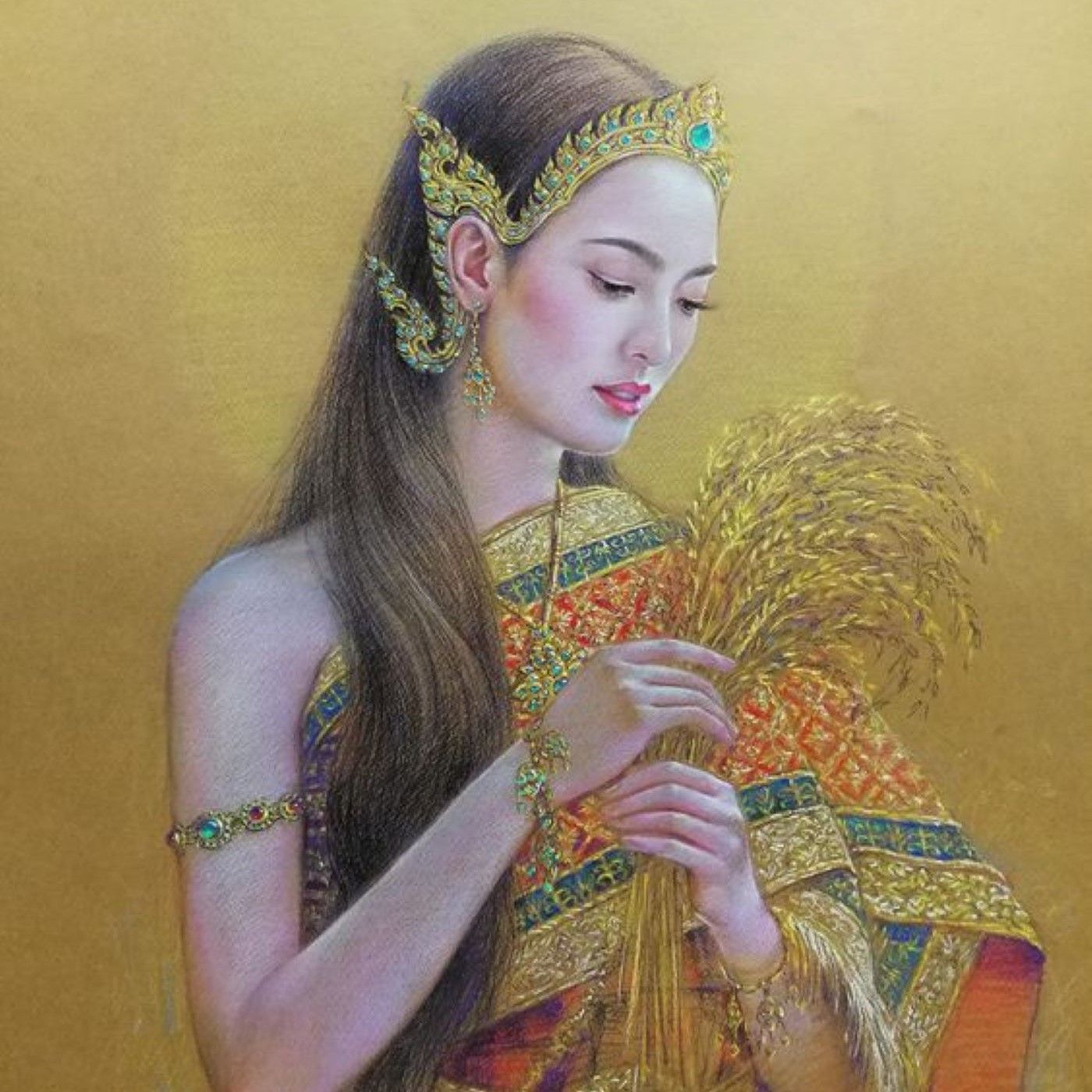
Dewi Sri - The Rice Goddess
Dewi Sri is not your usual goddess of grain and harvest. Born as a gift to the K -
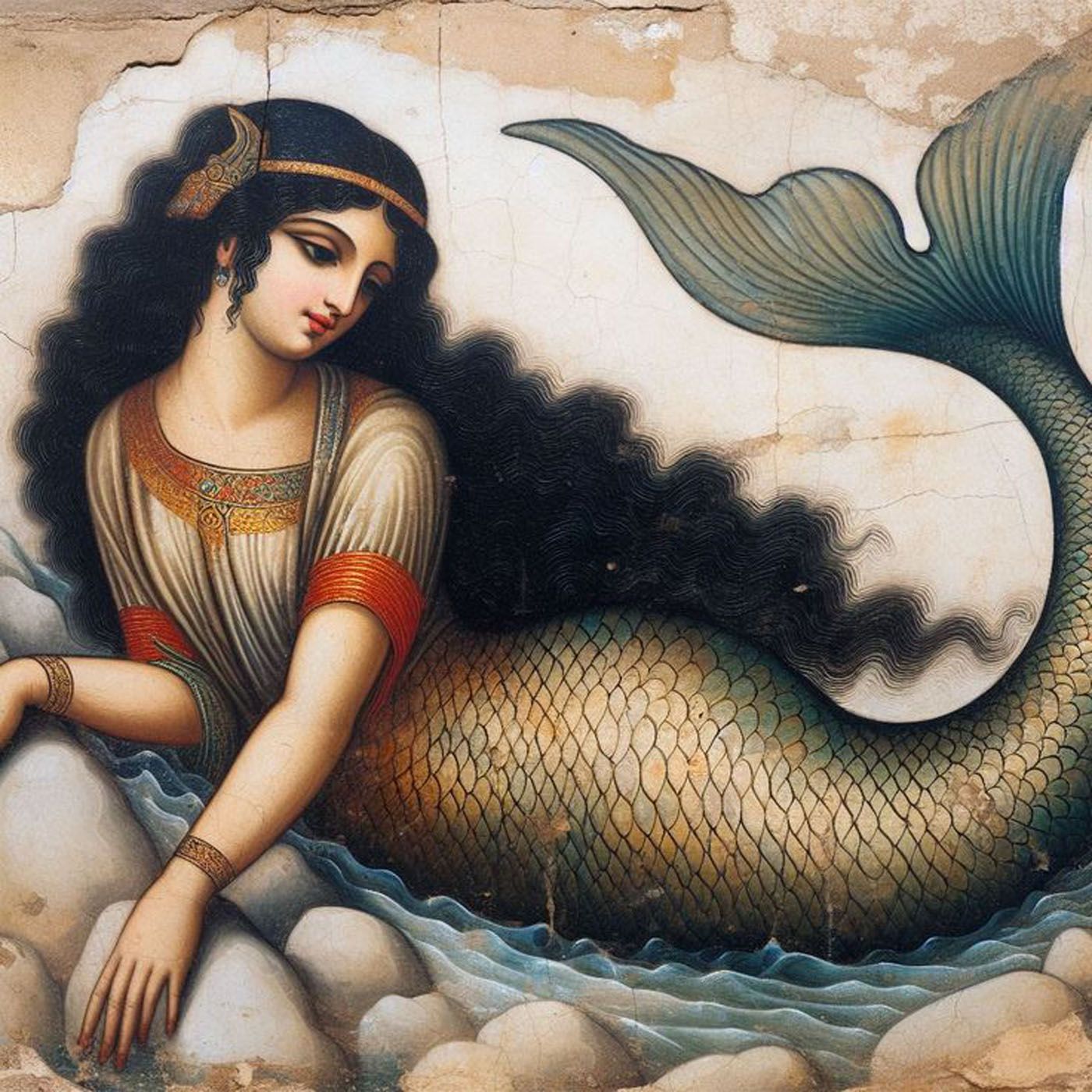
Atargatis - The First Mermaid
The powerful emotions of human life can lead to great transformations. Atargatis -
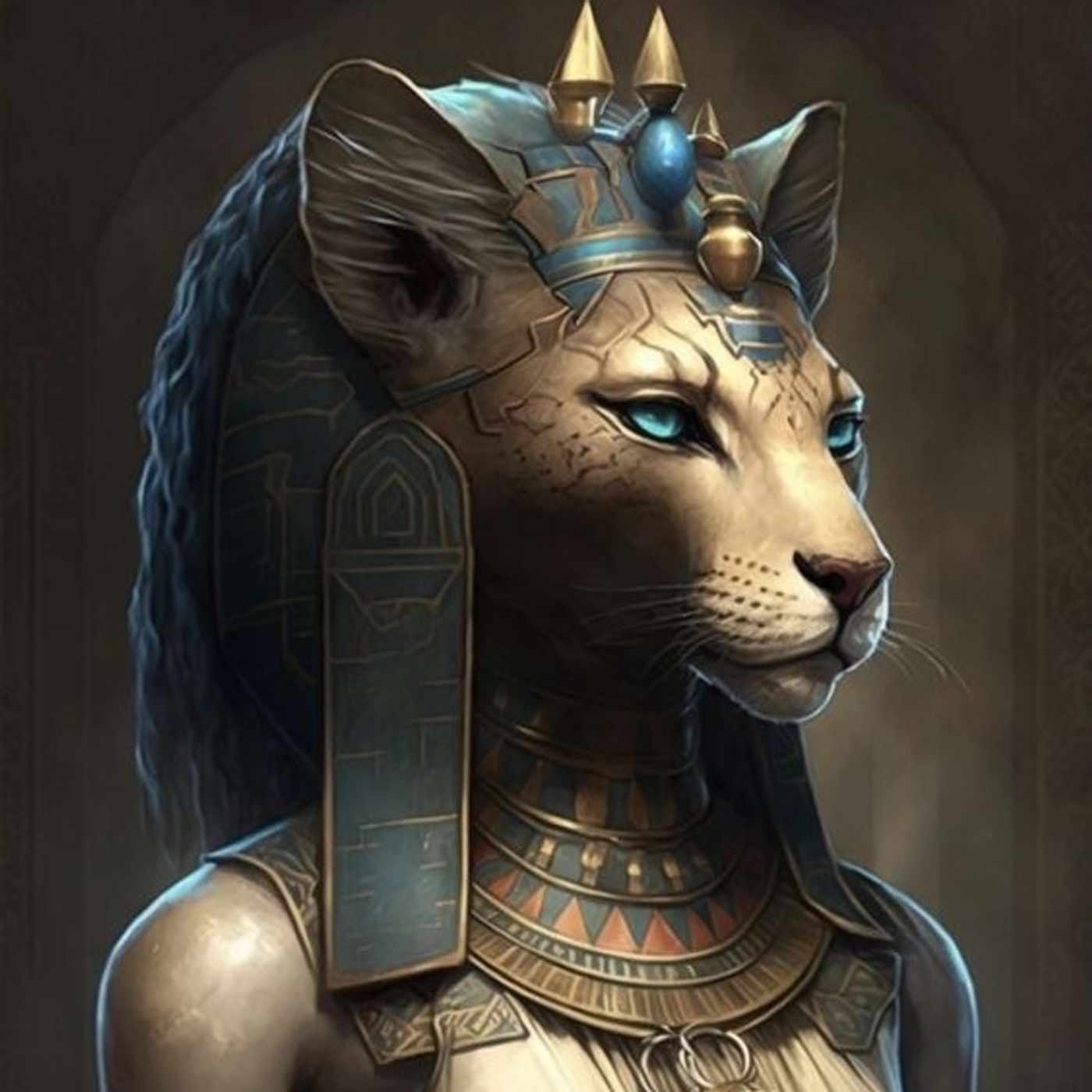
Sekhmet - The Lioness of Balance
The world and it's people live in a balance that is both fragile and all encompa -
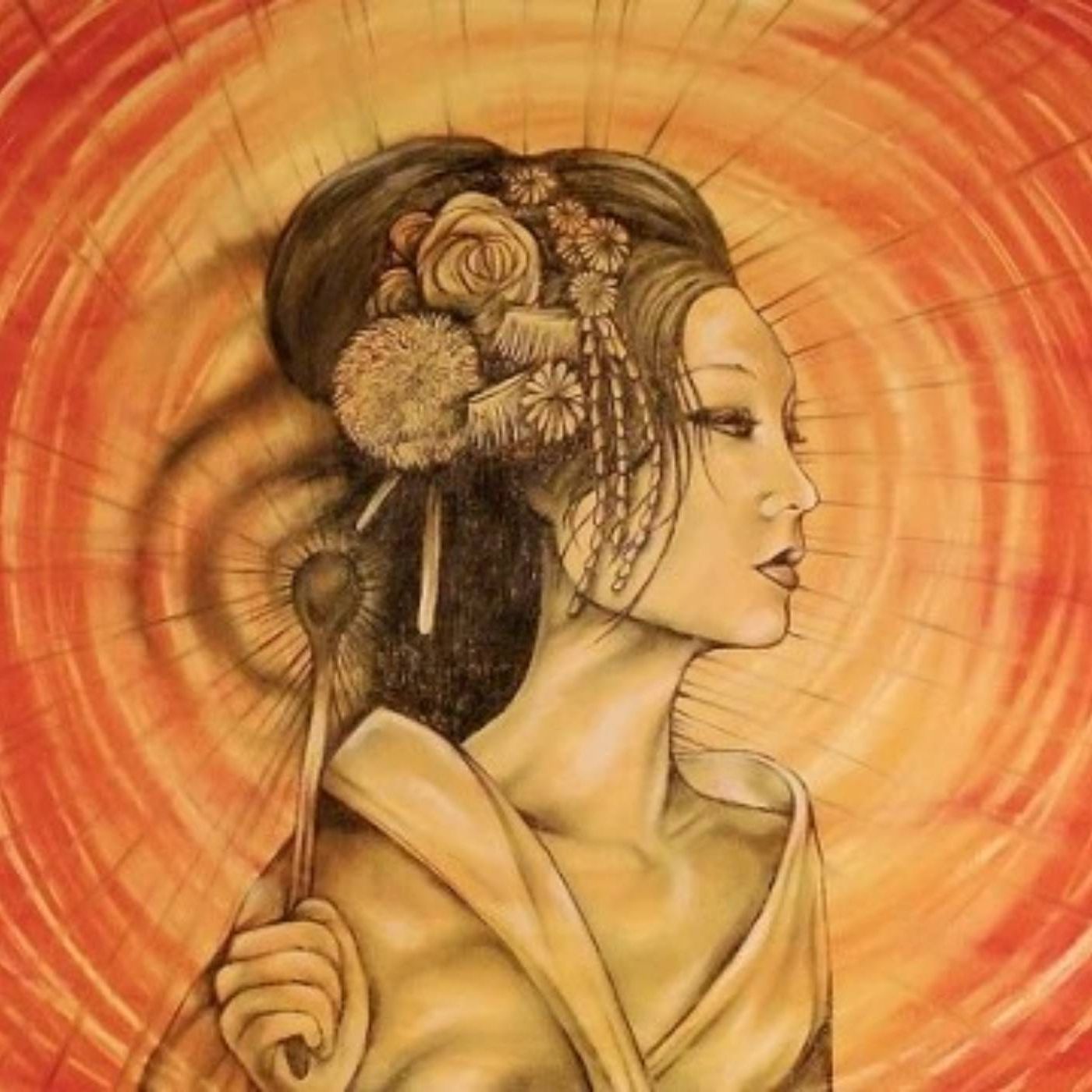
Amaterasu -The Goddess of Light
Amaterasu is the Japanese Goddess of Light. When Amaterasu is grief stricken and

